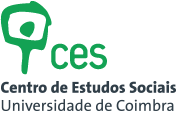Curso de Formação Avançada
The Intercultural Dynamics of Multicultural Working
4 de fevereiro a 4 de março de 2011 (CANCELADO)
Picoas Plaza, R.Tomás Ribeiro, 65, CES-Lisboa
Conception and Coordination:
Manuela Guilherme(PhD.)
Associate Professor (Universidade Lusófona de Humanidades e Tecnologias)
Senior Researcher (Centro de Estudos Sociais [CES], Universidade de Coimbra)
Associate Researcher (Centro de Estudos e Intervenção em Educação e Formação [CeiEF], ULHT)
Organization:
Observatório das políticas de educação, formação e ciência e Núcleo de estudos de democracia, cidadania multicultural e participação
Introduction
Mobility, cultural (re-)creation and intercultural exchange have long been recurrent aspects of human life. However, throughout the past century, unparalleled technological progress in communication and transportation has had a dramatic impact on human ways of life and led to a significant increase in global mobility and intercultural communication and interaction. The world has become more cosmopolitan and, therefore,terms such as ‘expatriate’, ‘emigrant’ or ‘immigrant’ will gradually fall into disuse, for the world is becoming less divided between guests and hosts. Difference has traditionally grown and been organised within distinct communities, despite occasional contacts, or conflicts, to be more precise, between them. However, currently, due to the reasons mentioned above, cross-cultural contacts have increasingly become part of everyday routines and now often take place at the individual level, where people are brought together for the purpose of fulfilling common tasks. The information-based society, economic globalisation, networking and mobility have changed both professional and personal relationships in the workplace. Not only have organisational demands had to keep up with new societal and market requirements, but also different cultural, taken-for-granted, responsive actions have been brought face to face in such a way that individual workers have been forced to conform and correspond to the expectations of and pressures imposed by the various interests, including their own.Intercultural exchanges happen not only between individuals representing differentiated ethnic communities, but also between the same individuals attempting, at the same time, to find their way through their multiple identifications and life stories. This has often been viewed as a hindrance to the smooth and successful fulfilment of the tasks proposed. However, a cosmopolitan perspective can bring out the potential of diversity for enriching the goals to be set in multicultural group work.Intercultural mobility happens across various levels: (a) global (b) national and (c) local, and generates intercultural dialogue between different systems of beliefs, values and attitudes. Any individual can, in principle, ‘travel’ through these levels, unintentionally and unchanging, yet aware of the differences. That is, this individual can be physically mobile, have multicultural experiences, perhaps have a pluralistic political position by accepting and enjoying difference, yet never quite reach an intercultural stage.It is common understanding that, even at work, one acquiresintercultural communication and interaction proficiency merely by experience or that it happens by predisposition. However, it is not so, it requires formal education and expertise preferably at academic level. This is precisely what this course intends to provide. The leading topics of this course are: (1) Global Mobility; (2) Identity issues in multilingual and multicultural societies; (3) Diversity Management; (4) Conflict and Negotiation; (5) Intercultural Responsibility.
Programme:
Feb. 4 (14.00-19.30)
- Globalisation, mobility and cosmopolitan citizenship
Feb. 11 (14.00-19.30)
- Identity issues in multilingual and multicultural societies
- Intercultural working in multilingual contexts
Fev. 18 (14.00-19.30)
- Diversity management in multilingual and multicultural work groups
- Conflict and negotiation in multilingual and multicultural work groups
Feb. 25 (14.00-19.30)
- Definitions of intercultural competence for global working
- The development of intercultural responsibility across multicultural work groups
March 4 (14.00-19.30)
- The development of intercultural responsibility across multicultural work groups
- The intercultural dynamics of multicultural working (round-up conclusions)
Course language: English
Learning objectives
Behaviour:
- to develop a reflexive and critical look at intercultural exchange and cooperation;
- to recognise the potential of intercultural conflict and negotiation for establishing relationships;
- to be able to stimulate intercultural dialogue between different systems of beliefs, values and attitudes.
Language:
- to improve English language use, both written and oral;
- to expand vocabulary related to the topics being studied;
- to manage intercultural communication both in close and distant collaboration;
- to practise usage of English for Academic Purposes (EAP).
Content:
- to become knowledgeable about theories and practices related to the leading topics;
- to relate previous social and professional experiences and fieldwork with the theories and conceptual frameworks presented and discussed in the course;
- to interpret, examine and discuss critically, written, oral and visual texts related to the topics in debate.
Targeted audience
Researchers, basic/secondary school and higher education teaching staff, governmental departments and non-governmental organisations staff, business and banking staff, social services and local government staff, etc. The course aims for a linguistically, culturally and professionally varied audience.
Teaching methods
The course will combine theory input and discussion with analysis of practical incidents with the purpose of finding out different possible solutions. The methodology used is mainly content-based language instruction (communication through specific content).Text discussion, oral presentation and discussion, role-playing, self- and meta-reflection, debating and group interaction will be the strategies more frequently used.
Participants
Minimum number – 15
Maximum number – 25
Fees - €150 (25h)
Enrolment deadline – Feb. 02. 2011
Certificate of attendance provided for a minimum of 80% (6 complete sessions).
Contacts:
Tel. 216 012 848
Fax. 216 012 847
Componente logística: ceslx@ces.uc.pt
Local:
CES-Lisboa, Picoas Plaza, Rua Tomás Ribeiro, 65, 1050-233 Lisboa

